After creating your publication and selecting a theme, there are a few settings that can help ensure your site is named correctly, and can be crawled and identified by external services.
General settings
Title & Description
Set a publication title and description from the Settings → General → Title & description area.
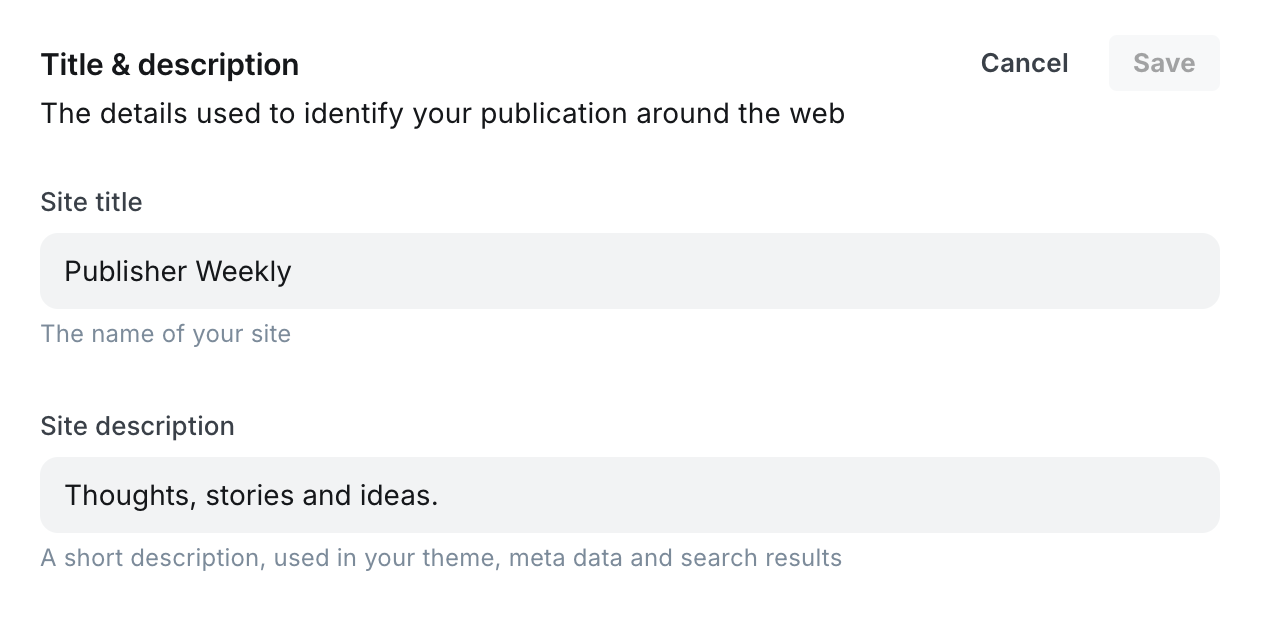
The title and description will be used across your publication, to help readers identify your site around the web.
Timezone
You can set the timezone of your publication from the Settings → General → Timezone area. When a custom timezone is set, this will be used for scheduling and publishing posts.
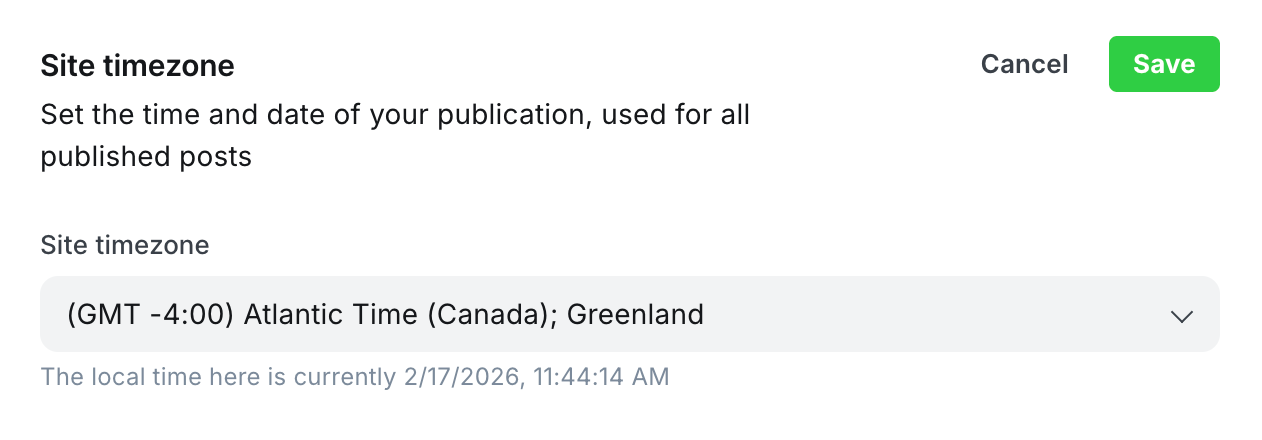
Publication Language
Set a custom language for your publication from the Settings → General → Publication language area, to automatically tell search engines what language your content is in.

Meta data
In the Settings → General → Meta data area, you can add custom meta data content for search engines.
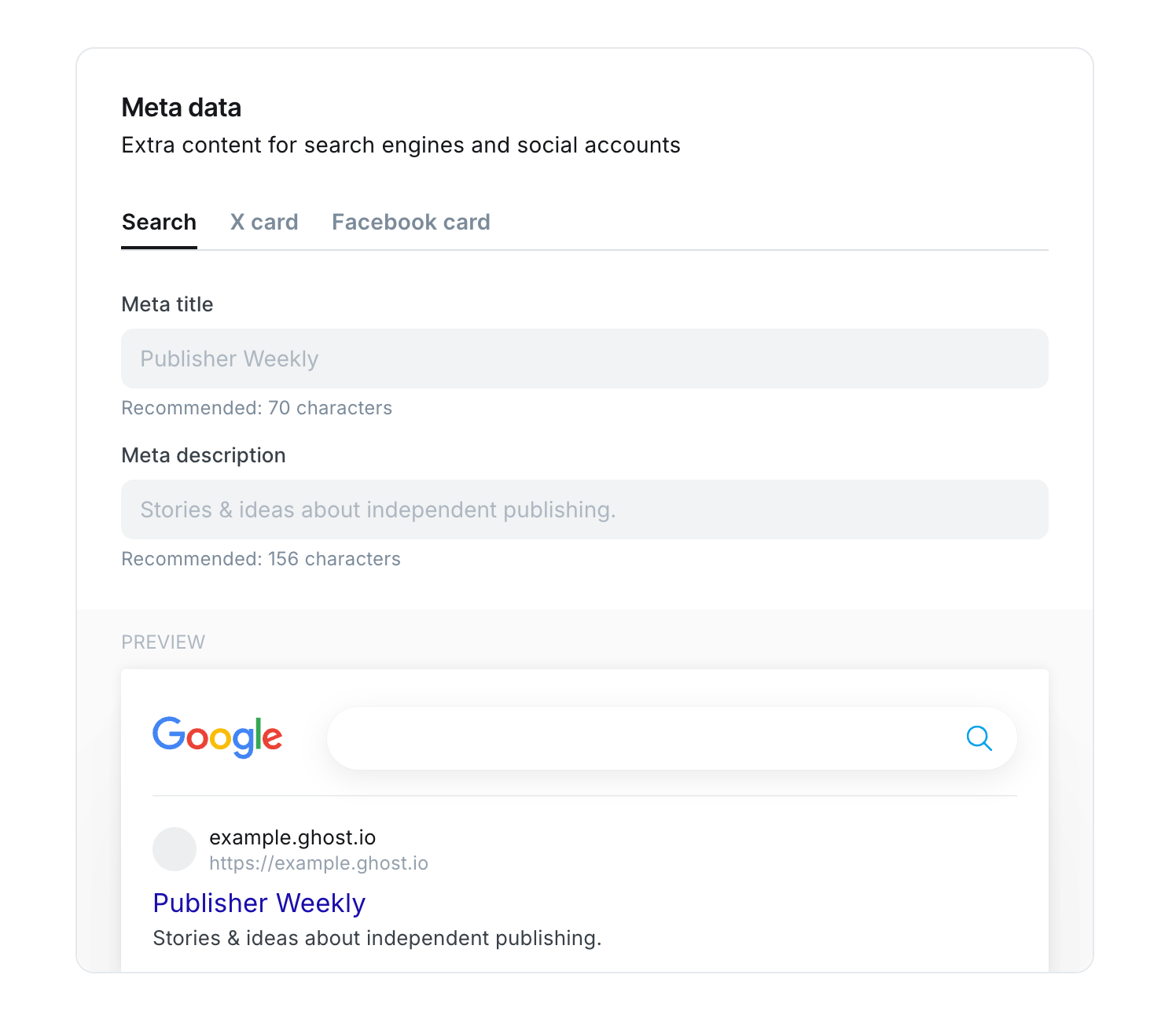
X Card
Customize how your site address is rendered when shared across X (formerly Twitter) by customizing the data in the Settings → General → Meta data → X card area. When your site address is shared across X, your custom card data will be rendered.
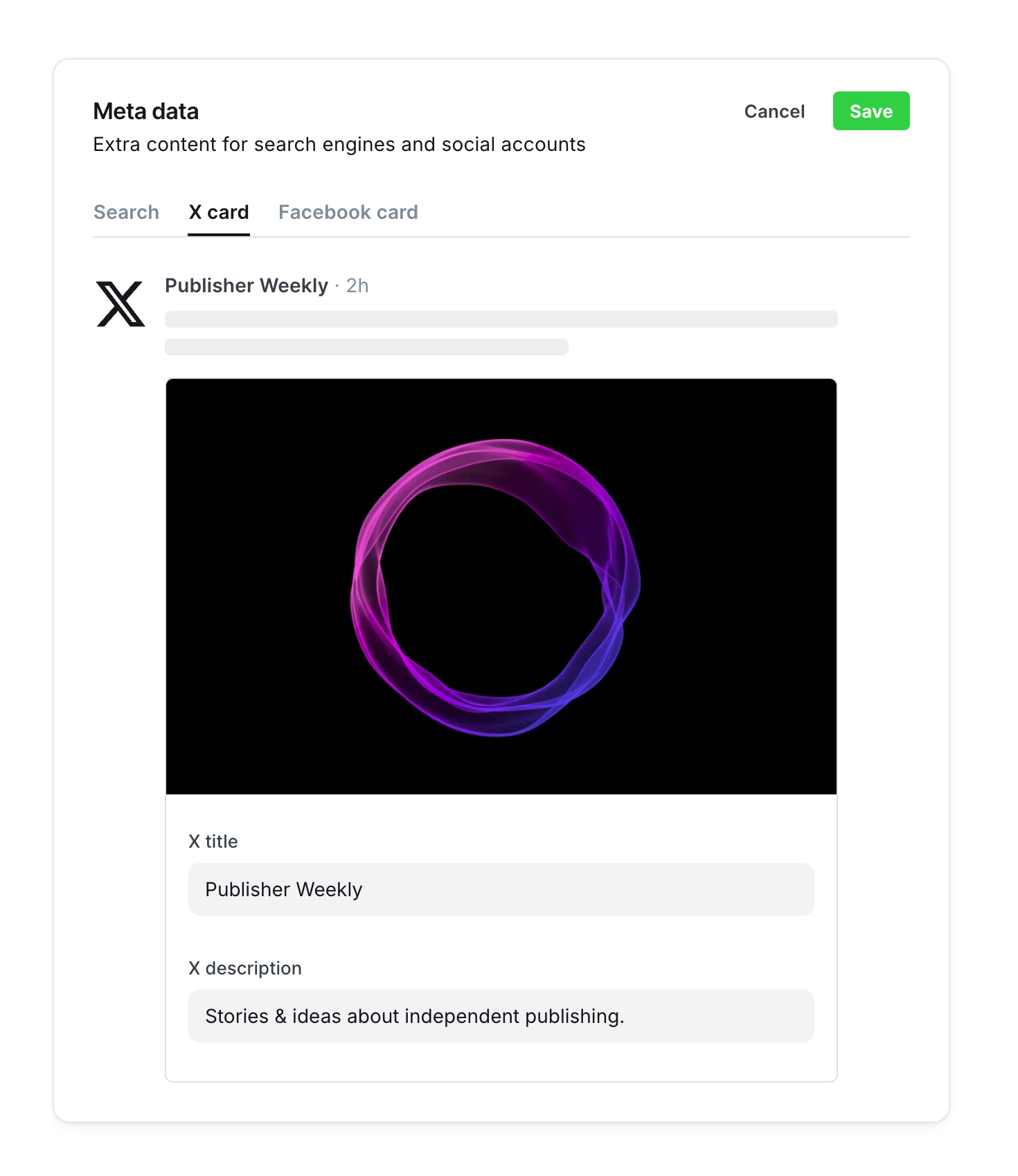
Facebook card
You can enter in custom structured data for Facebook in the Settings → General → Meta data → Facebook card area. When a custom image, title and description is added, this will be rendered in the Facebook card when shared.
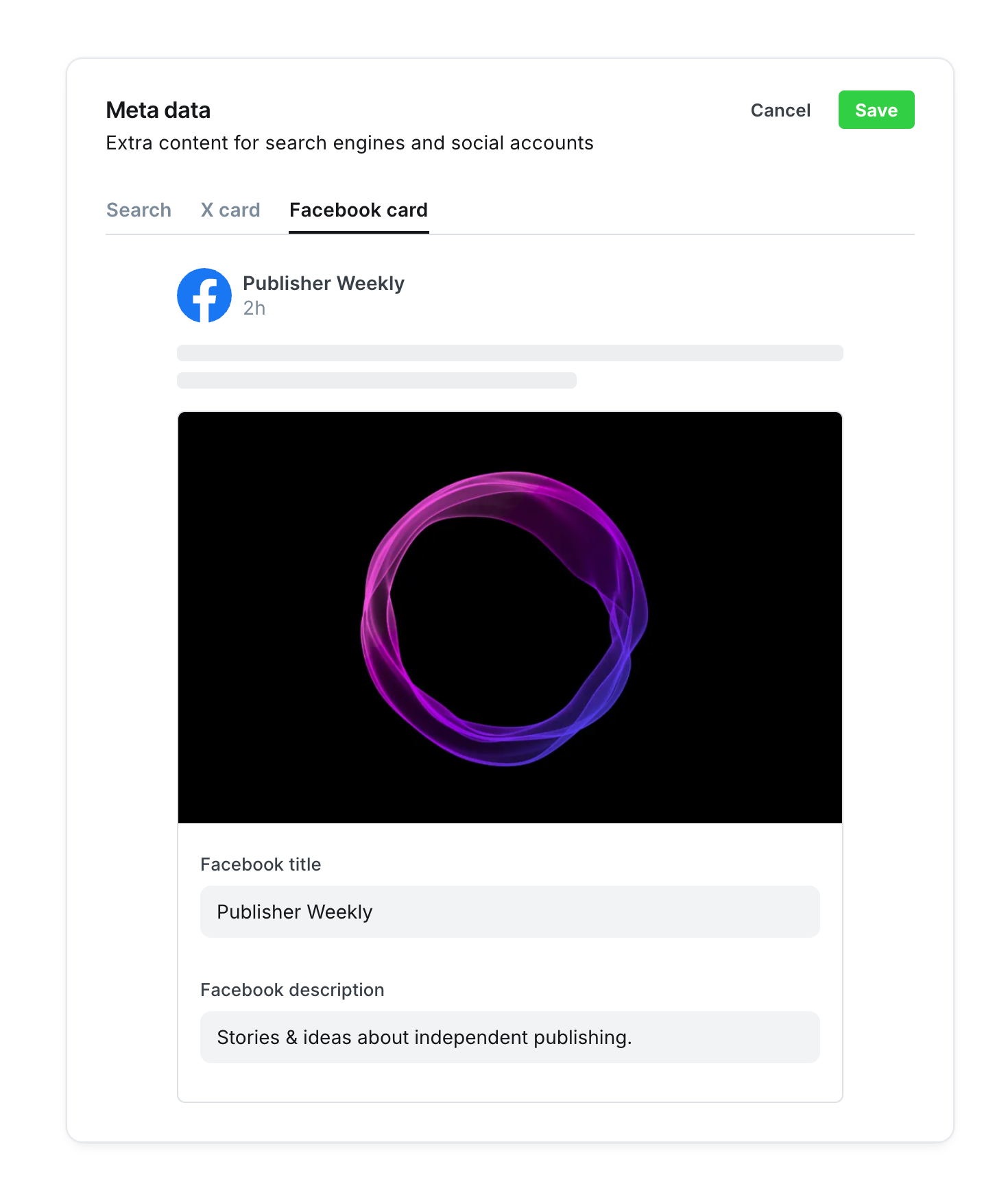
Social accounts
To include links to your Facebook and X profile and page, click Edit from the Settings → General → Social accounts area. When custom profile links are added, these will be associated with icons used across your site within your theme.
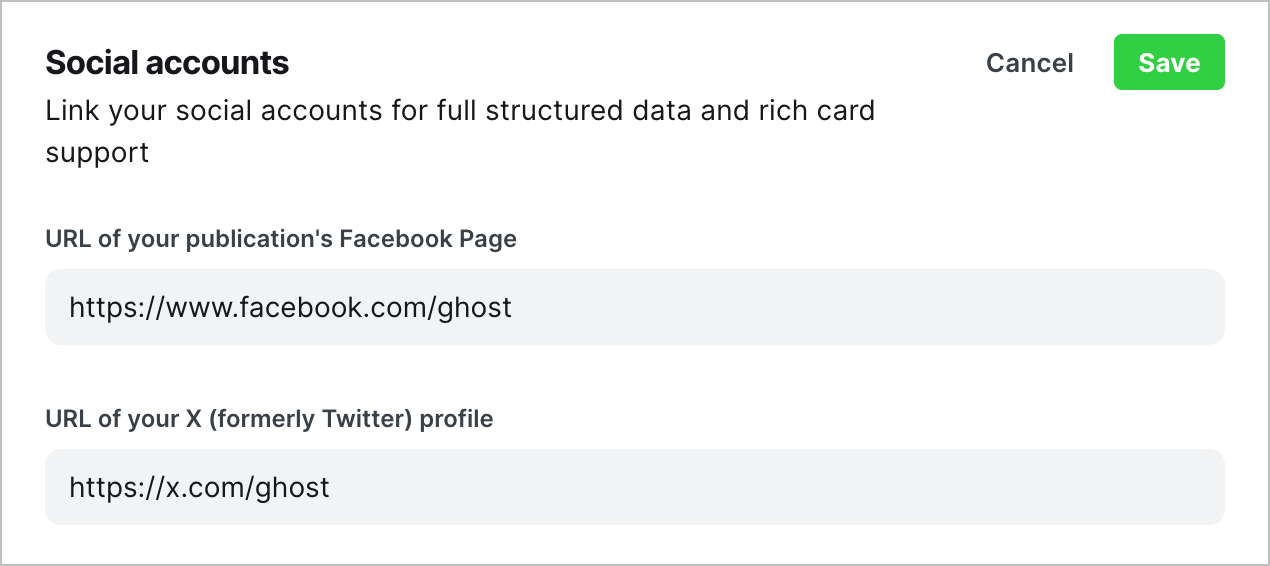
Make site private
If your new publication is not yet ready for prime time, you can use private site mode with a shared password, by enabling this option from the Settings → General → Make site private area.
When private site mode is on, all search engine optimization features are switched off to keep your site under the radar.
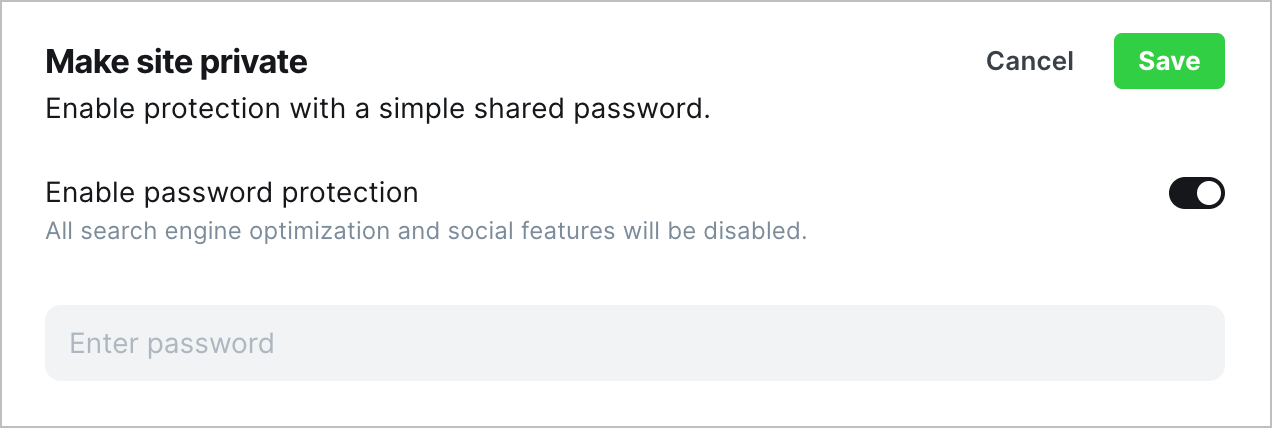
This is not secure authentication. You shouldn't rely on this feature for protecting important private data. It's just a simple, shared password for some very basic privacy.